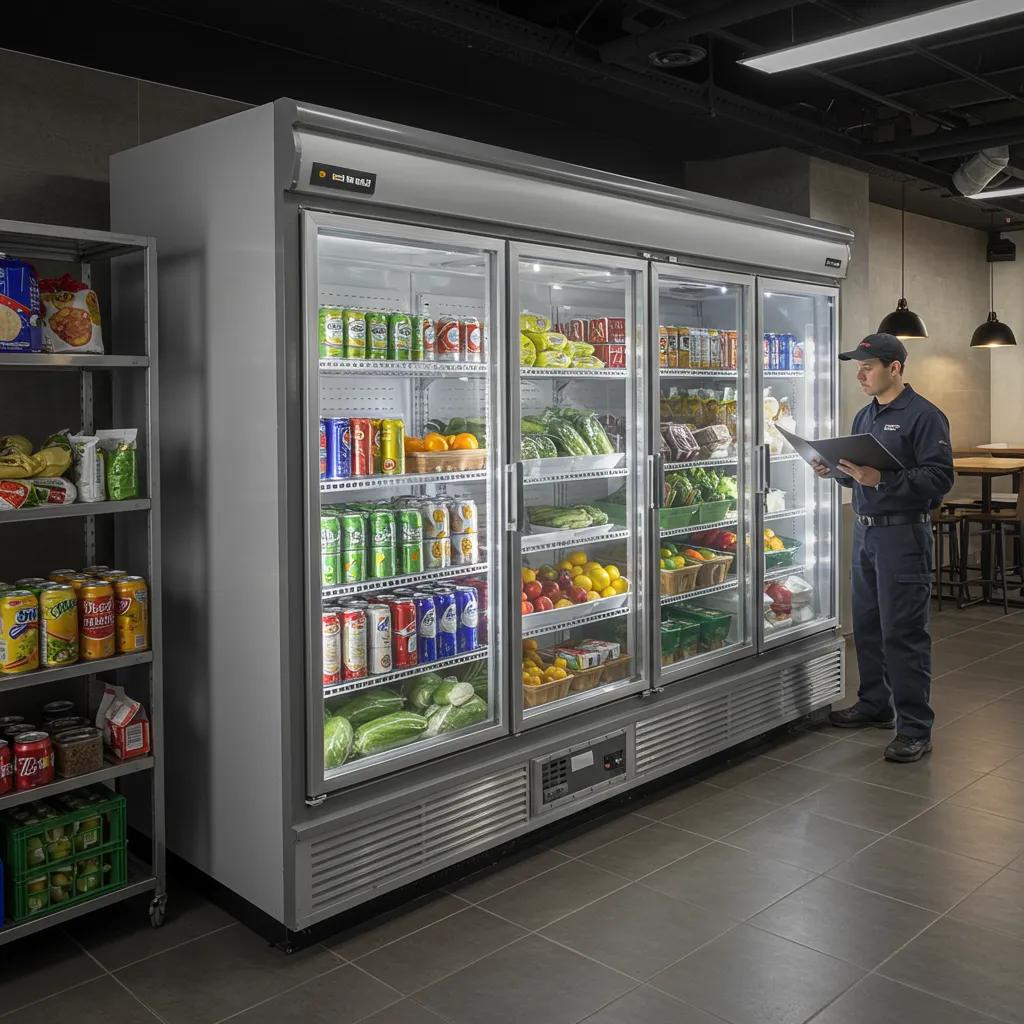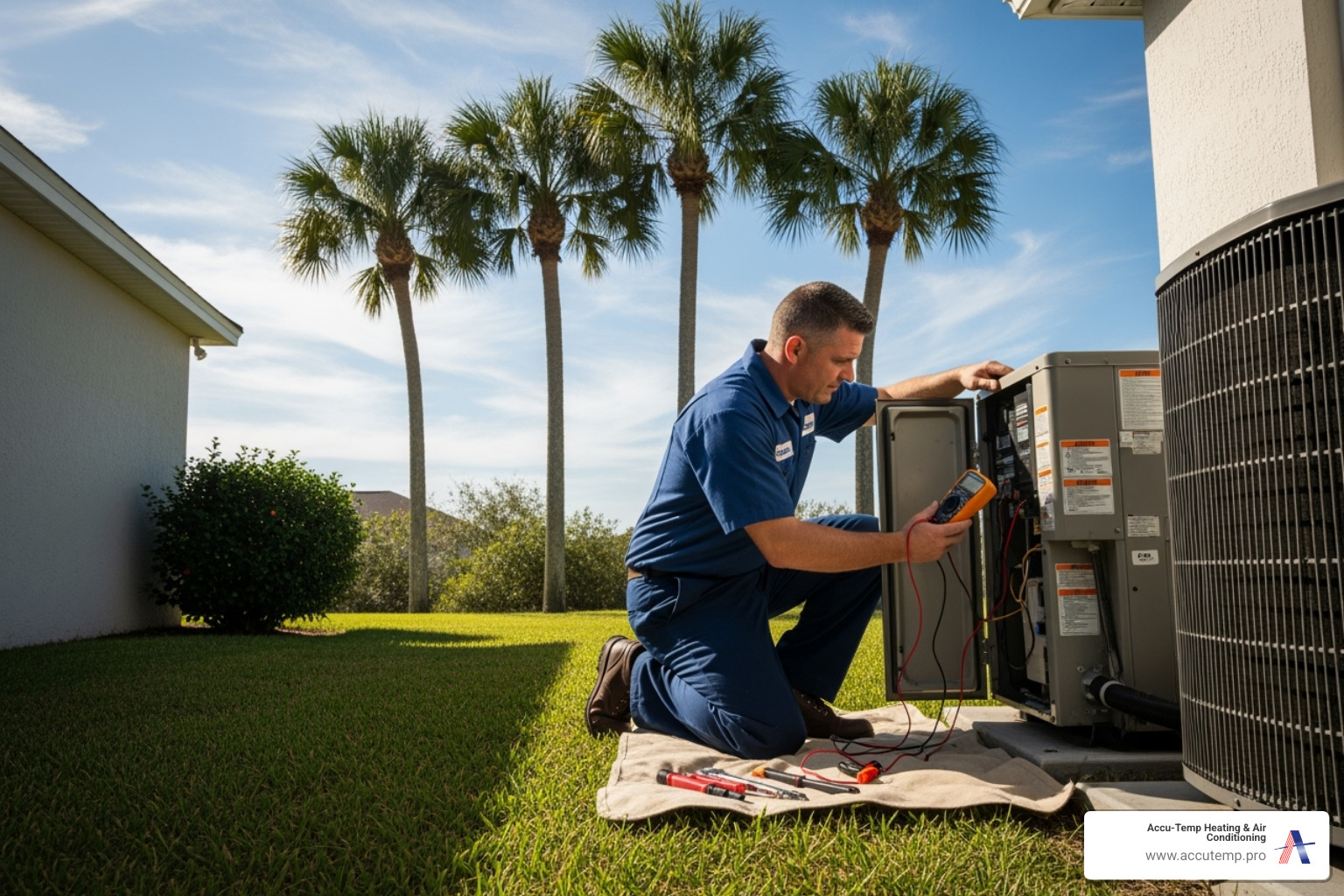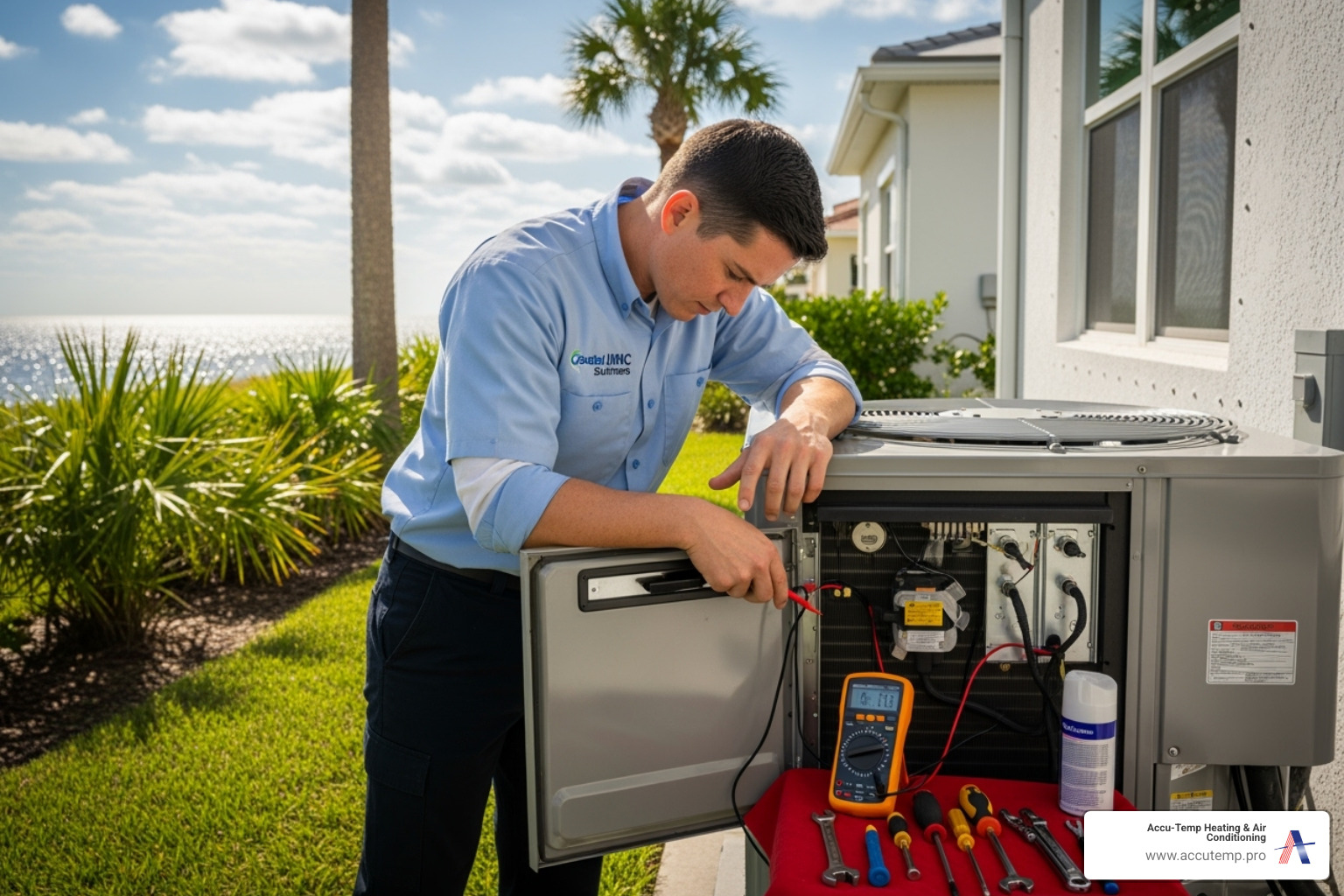When your mini split heat pump is running quietly in the background, it’s easy to forget it’s even there. But once it starts making loud or strange noises, that peace quickly vanishes. Homeowners across Palm Coast commonly report outdoor units suddenly getting louder, vibrating more than usual, or producing odd rattling or buzzing sounds. These changes can be disruptive and often leave people wondering if something serious is going on with their equipment.
Excessive noise isn’t just annoying—it usually points to a deeper issue within the system. Whether it’s a loose part, clogged component, or something worse, these sounds are worth paying attention to. Knowing what these noises mean and how to respond can help protect the performance and lifespan of your equipment. It’s especially important during summer when cooling systems in Palm Coast are working harder every day.
Common Causes of Loud Mini Split Heat Pump Outdoor Units
If your mini split’s outdoor unit is making more noise than usual, don’t ignore it. That noise could be trying to tell you something. Loud sounds, whether sudden or getting worse over time, often signal that one or more components are not working properly.
Below are several common reasons your mini split’s outdoor unit might be noisy:
– Loose or Worn Fan Blades
The fan in your outdoor unit spins quickly to move air and remove heat. If the fan blades become loose, unbalanced, or even bent, they can wobble and hit other parts inside the unit. This usually sounds like a repeated clicking, thumping, or buzzing.
– Outdoor Debris and Obstructions
Palm Coast is full of trees, pollen, grass, and more. Leaves, twigs, and other materials can get inside or stick near the outdoor unit. When something blocks the airflow or touches moving parts, it causes extra friction and sound. You may hear a scraping or vibrating noise when the system starts up.
– Compressor Starting to Fail
The compressor should hum gently, not bang or shake. When it begins wearing out or struggling under load, it often gets louder. You might notice a harsh buzzing as the unit turns on or as it runs under stress.
– Loose Mounting or Hardware
Sometimes, the sound isn’t coming from loose parts inside. Instead, vibration from the outdoor unit can loosen bolts, screws, or concrete mounts. These small things create a rattling or hollow knocking sound and often get worse over time.
– Refrigerant Issues
If there’s a leak or pressure problem, the compressor may make a high-pitched sound, almost like squealing or whistling. These problems disturb proper cycling and end up affecting performance across the whole system.
Palm Coast homeowners sometimes notice these sounds after a big storm or a summer landscaping project. For example, one resident experienced a loud clanking noise every time their system kicked on. When inspected, a small clump of mulch had lodged itself inside the fan assembly, throwing the balance off every time it moved.
Noise rarely goes away on its own. In most cases, waiting only leads to more wear and more expensive repairs. Being able to recognize early signs sets you up to act before real damage is done.
How to Tell Where the Noise Is Coming From
Understanding what you’re hearing helps narrow down the problem. Every type of noise can mean something different, and not all of the issues are visible from the outside. While outdoor mini split units are designed to be efficient and streamlined, they have plenty of moving pieces that can go bad or shift over time.
To start diagnosing the noise:
1. Stand near the outdoor unit with it running.
2. Listen for consistent sounds and note when they occur—only when starting, all the time, or on shutdown.
3. Try to locate the direction of the noise—is it coming from the fan side, unit base, or elsewhere?
4. Check for any visibly loose parts, stacked debris, or signs of rust or wear.
5. Step away to see if the noise continues or intensifies over time.
Here’s a basic breakdown of what common types of sounds tend to signal:
– Clicking could point to loose parts or fan obstructions.
– Buzzing often relates to electrical issues or compressor strain.
– Grinding or squealing might mean a damaged motor bearing or a piece rubbing where it shouldn’t.
– Humming is usually normal, but if it gets louder than usual, it may hint at overload or blockage.
Don’t attempt to take the outdoor unit apart on your own. Some problems, especially with the compressor or refrigerant lines, can cause injury or further damage if handled improperly. These systems are designed with safety in mind, but they also need specialized tools and experience to inspect correctly. If the sound has changed rapidly or the unit isn’t cooling like it used to, it may be time to bring in our professionals who know mini split heat pumps in Palm Coast inside and out.
Preventive Maintenance to Reduce Noise in Mini Split Heat Pumps
Keeping your mini split heat pump’s outdoor unit quiet and running smoothly isn’t just about fixing problems—it’s about stopping them before they start. Regular maintenance plays a big role in keeping noise levels down and performance high, especially during the warmer months when systems run more frequently in Palm Coast.
Basic cleaning around your outdoor unit goes a long way. Leaves, dirt, and yard debris often pile up near or under the system, especially after heavy rainfall or landscaping work. Clearing this area helps maintain airflow and prevents anything from entering the fan or other moving parts. Schedule time every few weeks during summer to sweep around the base of the unit and visually check for blockages or buildup.
Even small tasks like making sure the unit is level can help. Outdoor systems sitting on uneven surfaces often vibrate more, which leads to metal fatigue, loose hardware, and additional noise. Installing rubber pads or having the base adjusted can reduce these issues early on.
To keep noise under control and avoid mid-season breakdowns:
– Cut back grass and plants around the unit
– Listen for new or changing sounds during operation
– Check for visible rust, dented panels, or loose screws
– Never block the airflow with nearby furniture, fencing, or covers
– Avoid using extension cords or non-rated power sources
Beyond what’s visible from the outside, internal checks need to be handled by our technicians. Internal cleaning, refrigerant pressure tests, and electrical checks aren’t safe to do without the proper tools and training. Getting professional inspections once a year helps catch early warning signs like worn bearings, compressor imbalance, and refrigerant leaks—problems that often cause bigger performance and noise issues if left alone.
When You Should Bring In Our Professionals
Some sounds can be ignored for a short time without major risk, but others may point to more urgent problems that shouldn’t wait. If your mini split heat pump in Palm Coast is still making unfamiliar sounds after clearing debris and giving it some time, a deeper issue may be developing silently behind the panels.
It’s time to get professional help if you notice the following:
– Grinding noises that persist or grow louder by the day
– Loud buzzing near the compressor area during startup
– Unit shutting off on its own mid-cycle
– Cooling is weaker but the unit still runs at full power
– Water or oil around the base of the unit
In one case, a homeowner in Palm Coast ignored a soft buzzing they assumed was harmless. A few weeks later, the system stopped working altogether. The issue turned out to be a failing capacitor. It was a minor fix, but the added stress made the compressor overheat, resulting in a much more expensive repair. Waiting rarely pays off when unusual sounds are involved.
Calling in our technicians early helps spot and resolve these kinds of situations fast. They know how mini split systems are installed and operated specifically in coastal environments like Palm Coast. That means they check for exposure-related wear, sun damage on components, and any local pest issues that could affect wiring or airflow. Their inspections are detailed, and repairs are done to prevent the problem from happening again.
Ensure Quiet, Long-Lasting Performance
Mini split heat pump outdoor units are built to be efficient, but they still need regular attention. Once they begin making excessive noise, it’s a sign that airflow, electrical parts, or internal components might be under strain. Letting these noises continue not only makes your home environment less comfortable, but it also risks long-term damage to one of the most vital systems in your house.
Whether the issue is debris interference, loose fan blades, or compressor problems, action taken sooner always leads to smoother fixes. For Palm Coast homeowners, staying on top of sounds and changes in system behavior during high cooling demand is the best way to avoid more serious repairs later.
Preventive maintenance, regular inspections, and prompt attention to abnormal noises all play a part in keeping your mini split heat pump running quietly and efficiently for years to come. With the hot summer season pressing on, working systems should be performing without causing distraction or frustration.
For reliable maintenance and repair, Accu-Temp Heating & Air Conditioning is committed to helping you keep your system running efficiently and quietly. If you notice your outdoor unit producing unwanted sounds, our technicians are ready to give your system a thorough check. Learn more about how to care for mini split heat pumps in Palm Coast to stay ahead of common issues and maintain optimal performance. For a quick estimate or to book a service visit, please contact us today.




